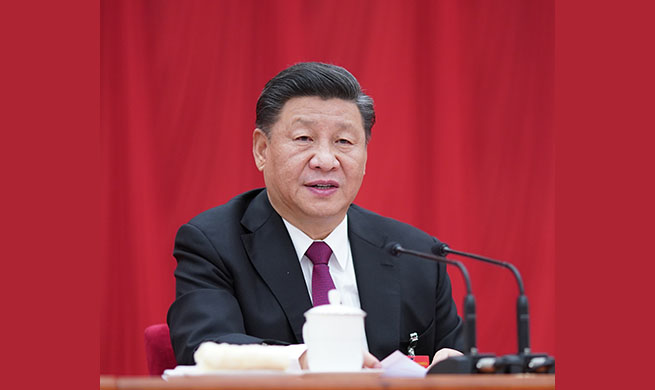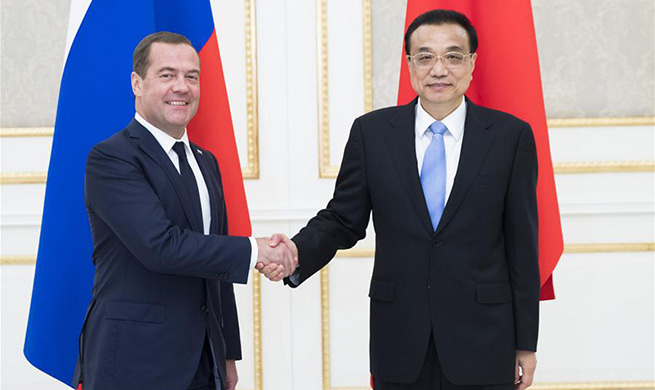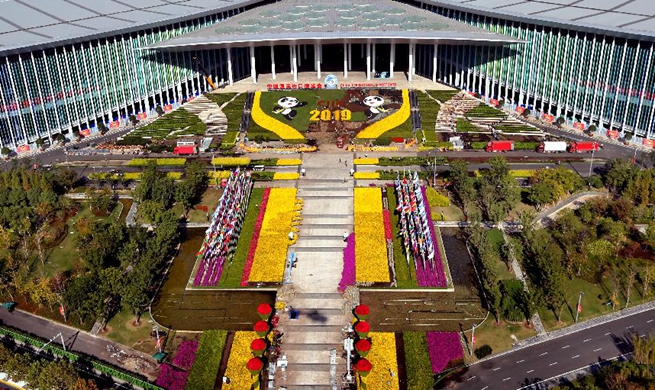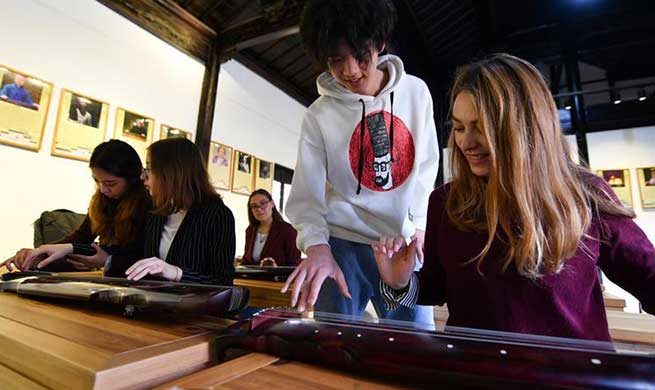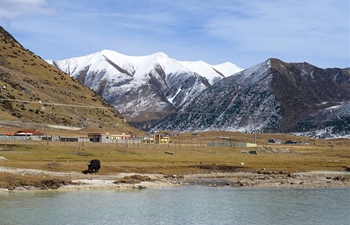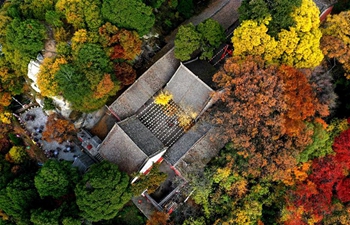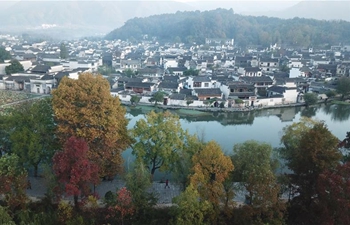SYDNEY, Nov. 1 (Xinhua) -- A world-first Australian study of coral has challenged long-held scientific assumptions about the role of sunlight in creating biodiversity, with impacts potentially extending far beyond the reef.
Released on Friday, the study investigated coral diversity in Papua New Guinea's Kimbe Bay, and was led by Dr Ed Roberts from Australia's James Cook University (JCU), along with colleagues from the Queensland Museum, Britain and Denmark.
Previously it was believed that higher amounts of sunlight, and hence energy, creates more biodiversity on coral reefs; however, when Roberts and his colleagues analysed thousands of coral colonies at various depths across Kimbe Bay, they found that the long standing hypothesis did not hold up.
"Theoretically, more energy allows more individuals to co-exist," Roberts explained. "This in turn allows more species to maintain large enough populations to avoid local extinction."
"Our results do not agree with this classic explanation of how diversity changes with energy."
The researchers found that coral diversity was actually highest at depths between 15 and 20 metres and that the shallower depths had fewer species.
Hindered in the past by a lack of high-quality data, the study at Kimbe Bay allowed researchers to survey an unprecedented dataset of 8,460 coral colonies, across six reefs, spanning 98 percent of the light gradient.
"This allowed us to test the classic Species Energy hypothesis that proposes the greater the energy available, the greater the diversity," Roberts said.
Study co-author Dr Tom Bridge who is also from JCU, believes that the surprising results may warrant a rethink of environmental scientific theory more broadly.
"Hyper-diverse corals reefs are ideal ecosystems to test theories about how diversity is distributed in nature, so it is really interesting that our results do not support the classic hypotheses," Bridge said.
"More broadly, our analyses cast doubt on the suitability of these hypotheses more generally across terrestrial, marine and freshwater systems, suggesting that ecologists might need to rethink the underlying causes of these fundamental patterns of diversity."






